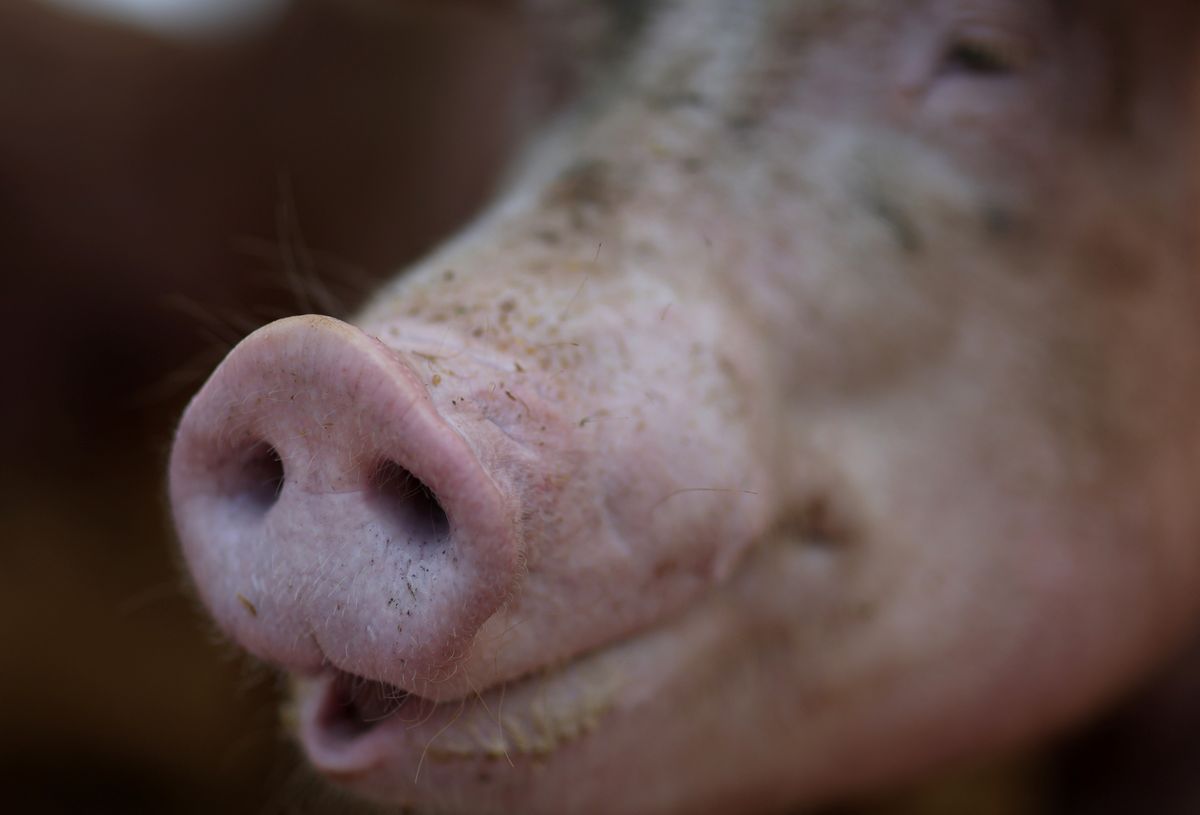Could gene-edited pigs help us solve the global organ shortage?
Last week, doctors in New York announced that a pig kidney transplanted into the donated body of a brain-dead patient had successfully worked for over a month.

A few minutes every morning is all you need.
Stay up to date on the world's Headlines and Human Stories. It's fun, it's factual, it's fluff-free.
The backstory: In the US, there are over 100,000 people waiting on the organ transplant list. For more context, China reported over 20,000 transplants in the country in 2022 alone, according to the Global Observatory on Donation and Transplantation. But many people die each day waiting on a transplant.
Around the world, there’s a shortage of suitable organs to offer to people who desperately need them. That’s why scientists have been looking into ways to potentially use animal organs as a solution. For example, in 1984, a baboon heart was transplanted into a patient named Baby Fae. But she died 20 days later when her immune system attacked the organ.
The problem is a lot of these experiments transplanting animal organs into human bodies have failed, as our immune system often rejects and attacks the organs, sometimes as soon as they’re implanted. Some animals’ organs can also introduce harmful viruses into their recipients.
Most often, pigs have been the go-to for these kinds of experiments for a few reasons. For one, their organs are similar in size to human organs, especially the heart. Also, they’re pretty easy to raise domestically, they have large litters of piglets, and they mature quickly, meaning patients wouldn’t have to wait as long to receive an organ donation.
More recently: In 2016, National Institutes of Health (NIH) researchers said that a pig heart transplanted into a baboon’s abdomen had stayed healthy for nearly three years, and using immune-system-suppressing drugs had reduced the chances of the body rejecting the donated organ. In 2018, scientists in Munich were working on functioning heart transplants for baboon patients, which saw some limited success. Then, in 2020, Chinese researchers said they’d successfully produced genetically-modified pigs using a technique called CRISPR (and some other gene technologies). These pigs essentially had their genes edited so that they were more compatible with the human immune system.
In early January last year, the first-ever transplant of a pig heart into a human took place in the US. A 57-year-old man with heart problems received a pig heart transplant successfully. Sadly, the man died two months after this procedure, but doctors said his death was from heart failure, not rejection, which gave them hope that these kinds of transplants still had some promise.
The development: Last week, doctors in New York announced that a pig kidney transplanted into the donated body of a brain-dead patient had successfully worked for over a month. This is the longest a pig kidney has functioned in a person – although doctors caution that it’s hard to tell if the response from a deceased body will be the same as a living patient that receives a transplanted pig organ.
This experiment is one of several aiming to get regulatory approval for more clinical trials on pig organ transplants in volunteer patients. Last week, the University of Alabama also reported a similar experimental transplant that worked for seven days. For now, it’s tricky because the trials depend on how stable the donated body is, as well as the feelings of the patient’s family, as the body needs to be kept on a ventilator throughout the experiment. But, these recent results suggest that science is making great strides toward potentially solving the worldwide organ shortage.
Key comments:
“I struggled with it,” said Mary Miller-Duffy, about her decision to donate her deceased brother’s body to the experiment, adding that her brother liked helping people. “I think this is what my brother would want. So I offered my brother to them. He’s going to be in the medical books, and he will live on forever.”
“It looks even better than a human kidney,” said Dr. Robert Montgomery, director of NYU Langone’s transplant institute, when they transplanted the pig organ into the patient. “Is this organ really going to work like a human organ? So far, it’s looking like it is.”
“This work demonstrates a pig kidney—with only one genetic modification and without experimental medications or devices—can replace the function of a human kidney for at least 32 days without being rejected,” said Dr. Montgomery in an NYU Langone Health press release.
“For the first time in a human, genetically modified pig kidneys provided ‘life-sustaining kidney function’ during the course of a planned seven-day study — all while using current standard-of-care immunosuppression drugs,” said a statement last week from the University of Alabama.
“Over the last 20 years, we’ve gained a lot of information about how pig kidneys work to replace the functions in primates. But the critical question – ‘Will those data be translated exactly to the human recipients?’ – was unknown. And for the first time, we’re being able to supply that information. So hopefully, this also gives some assurance to the FDA regarding the safety of initiating phase one clinical trials,” said Dr. Adam Griesemer, surgical director of the NYU Langone Pediatric Liver Transplant Program and the Living Donor Transplant Program, at a news conference last Wednesday.




Comments ()